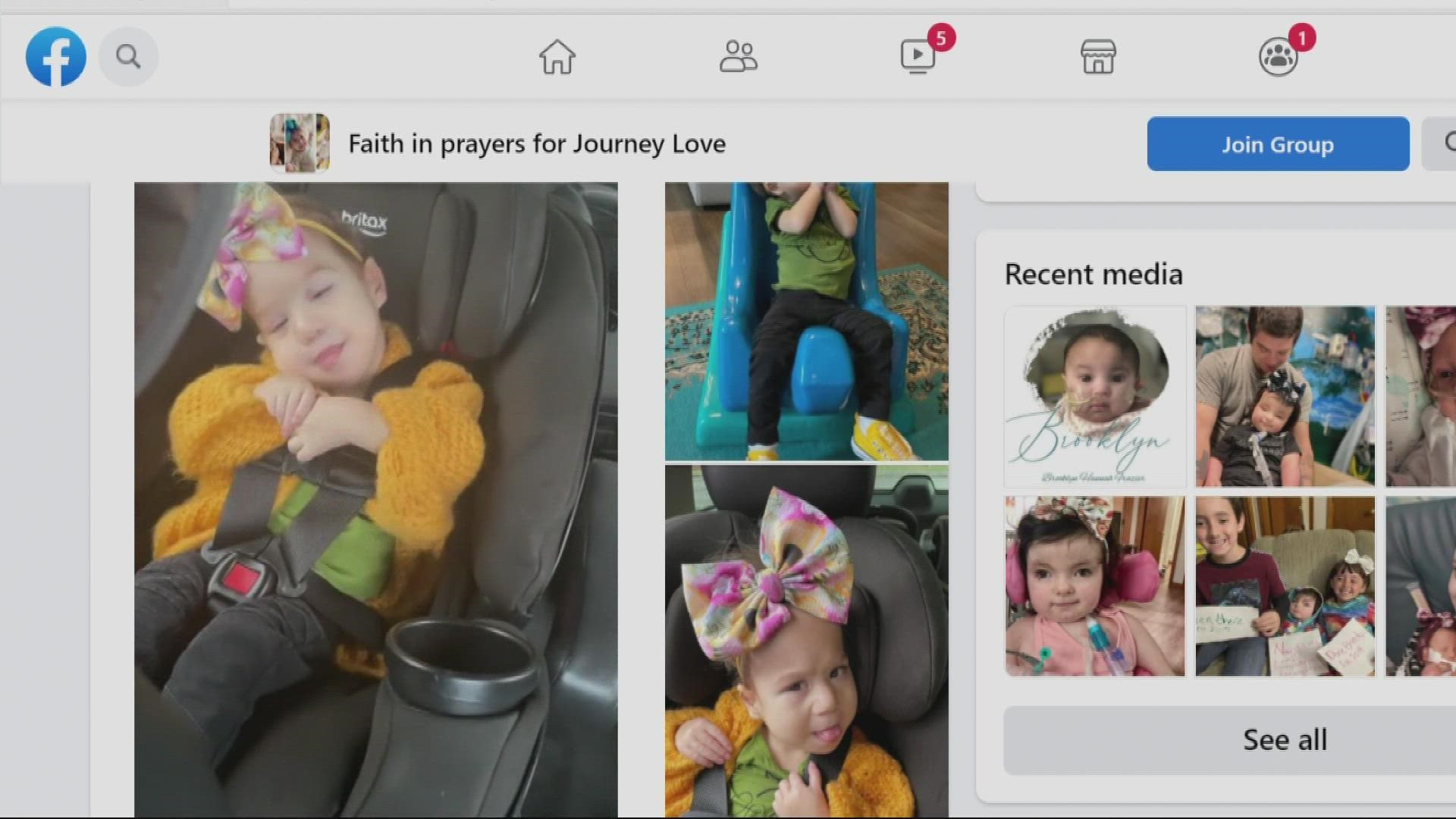DALLAS, Oregon — From the big floppy bow adorning her sweet face, down to her dainty little hands, it's easy to see why Deirdra Hoffman adores her daughter, Journey Love.
“She's just the light of our family,” said Hoffman from her Dallas, Ore. home. "She really is."
But there's also what you can't see. When Journey Love was born, doctors didn't expect her to live longer than a week. In December, she'll turn 3 years old.
“She is doing some amazing things that we were told she would never do,” said Hoffman.
Hoffman said Journey Love was diagnosed with Trisomy 13, also known as Patau syndrome. It's a rare genetic disorder that can lead to physical and intellectual challenges. Medical literature has described the condition as "incompatible with life."
“They are not incompatible with life,” said Hoffman. “If they are given that label, honestly you and I need to have that label because none of us — we don't know our time.”
It's that passion for life and children that led Hoffman to dedicate a special Facebook page to all kids with similar diagnoses — and their families.
Whether it's Trisomy 13 or the similar Trisomy 18 or even Trisomy 21, also known as Down syndrome. The page is called Faith in Prayers for Journey Love."
“It’s an amazing thing to see the community and how much it builds by sharing all of these children,” said Hoffman.
Hoffman’s goal is to share a year's worth of posts showing children being what she lovingly calls “rule breakers”— kids doing things they were never expected to be able to do.
“We have pictures and videos all the way up to children riding bikes, walking independently, going to school,” said Hoffman. “For some, it may be that they would never make it out of utero or they're born and they live a few days; but the joy that they bring in that time frame, that's what’s shown. Hope is what it is.”
Hoffman said she's grateful for Journey Love's medical team and the support they've shown. She's also encouraged by a recent change regarding Trisomy 18. Rather than "Incompatible with life," medical databases are now describing it as a “need for palliative care or proper interventions.”
“This is huge! We need to carry the momentum and make the change for Trisomy 13, too,” said Hoffman. “If you take away hope and you only give a label, you're taking away a lot of opportunity at life.”

